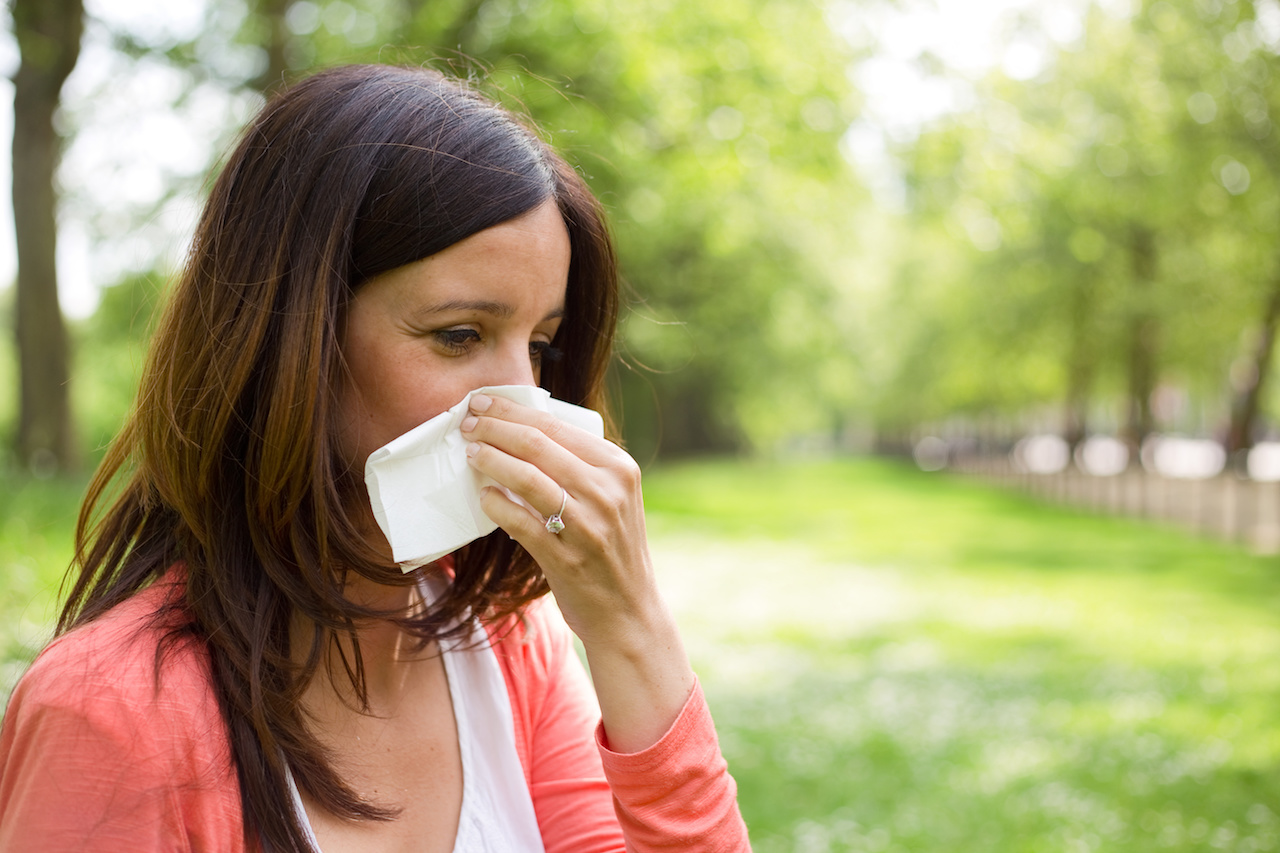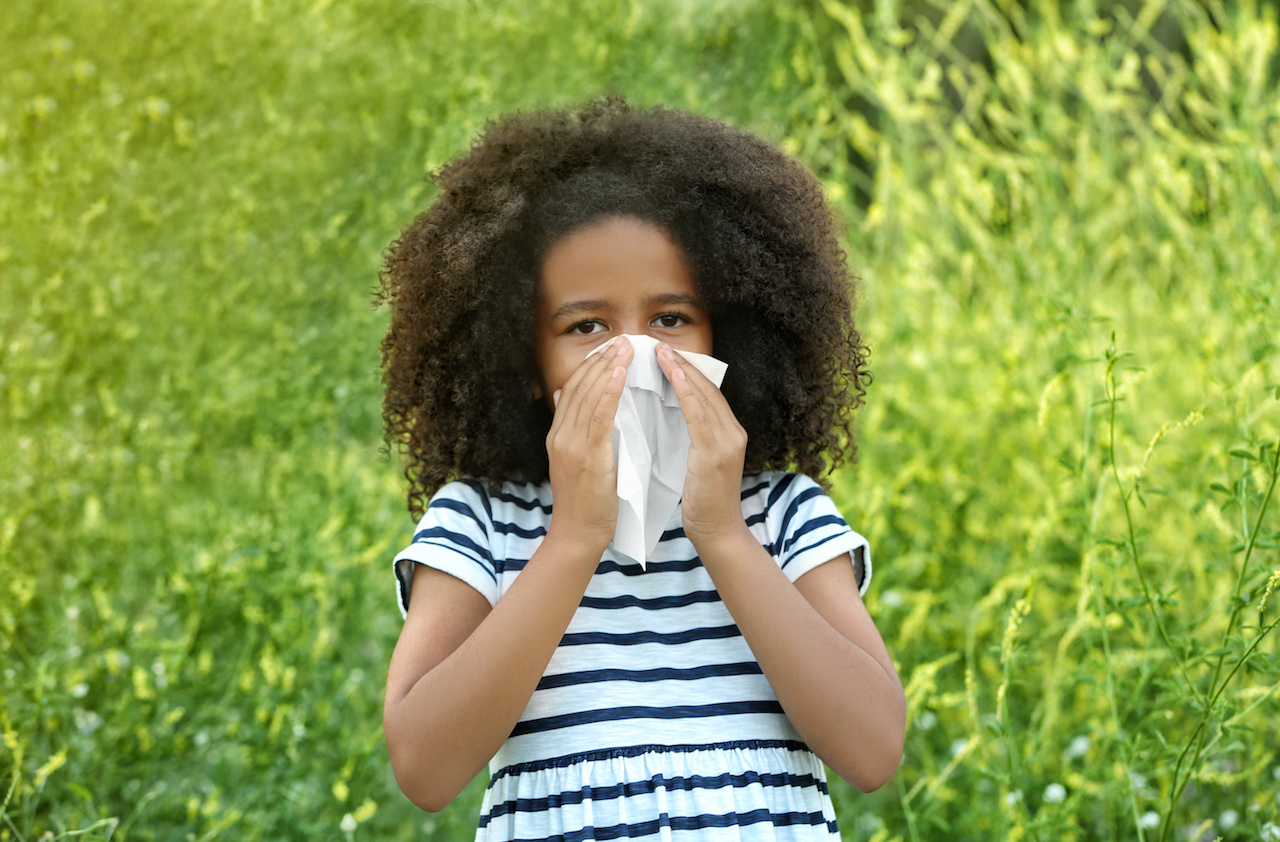Spring has sprung, Kansas City! And for many people, that means springtime allergies are upon us.

Everyone has been anxious to get outside while social distancing due to the COVID-19 pandemic. Get outside and enjoy the tulips, the flowering trees and the warmer weather, but remember the tree pollen has started to fly — Elm, Maple and Juniper trees were the first to pollinate and are in full bloom! Let’s talk about what this means for your allergies.
What is pollen, anyway?
The pollen from trees will progressively increase as different trees start their pollination. Pollen is like a powder or dust that falls from the plant and is carried by the winds. So when it is windy there is more pollen in the air. Early in the morning there is less pollen in the air. As the sun heats the air the pollen will rise and be carried by the winds. So the earlier in the day you are outside the less pollen you will be exposed to. The pollen counts will drop in the evenings as the day cools off.
Dust and allergies
In early spring the dust blanketing the area is pollen from trees, later spring we will see pollen from the grasses. When grass pollinates there is an increase in the overall pollen count, and that means more dust in the air. Pollen from trees and grasses will last into the heat of summer, depending on the rain the pollen may last into July, but if it is dry it may end a bit earlier.
Allergy Symptoms and How To Manage Them
With all the dust in the air allergy sufferers will feel swelling of the lining of the eyes and nose, and most importantly “itching.” Nasal blockage and sinus pressure is due to vasodilation or blood vessels dilating and decreasing the space in the nose and sinuses. If you suffer with allergies your body will release histamine. So taking an antihistamine may help, maybe adding a nasal steroid spray, and if you are healthy enough a decongestant.

Eye irritation can be miserable and not all is due to allergies, but related to the amount of dust and pollen in the air. So eye moisturizing drops may actually be more helpful than allergy eye drops. Protecting the eyes wearing sunglasses or even goggles can make a big difference whether you have allergies or dry eyes.
Asthma may flare up in the spring, as well. Histamine release can cause bronchial spasm, which is asthma. So taking your daily preventive inhaler is important, and having your albuterol ready to use as needed. Asthma can also be a concern with thunderstorms since the storm affects the size of the pollen grains allowing a deeper penetration into the lungs.
Since we are spending so much more time in our homes, consider making a room or two an “allergy-free” room. Open windows allow the pollen to get inside. Instead, using air conditioning, keeping doors closed, and vacuuming the room and waiting one hour before you re-enter the room (because vacuuming causes the house dust to float for an hour and can cause irritation) can help minimize allergies in those parts of the home.
Remember once Spring allergy season ends we get to look forward to Ragweed and the weed allergy season! This typically starts in August and ends once it freezes. But until then, enjoy the beautiful Springtime weather and blooming trees and plants that Kansas City has to offer.
Need help managing your allergies? We’ve got you covered.
Our office in Overland Park, KS specializes in testing and treatment of allergic rhinitis due to seasonal allergies. When coming in for testing as a new patient, the nurses at the clinic will speak with you about your symptoms, and Dr. Kanarek or one of our certified nurses will determine whether allergy testing is necessary.
From there, we’ll review some of the trees, grasses, and weeds we would like to skin test you for. For children, we have a simple multitest that offers a quick 11-unit test that checks for common seasonal allergies and is gentle for children. We do this test easily on the back. For adults looking for relief from their allergies, we do a more detailed and extensive skin test on the back. The test includes 51 allergens that include various trees, grasses, weeds, molds, environmental allergens, and animals.
Within a few minutes we will be able to see if your skin has reacted to an allergen. There may be a small, localized, itchy welt underneath the point of testing. Once we assess and document your reactions, we will wipe you clean and your itching will resolve quickly. If you have a reasonable level of allergies, we will create a treatment care plan for living with your allergies. If you score very high on the allergy test, you may be a candidate for immunotherapy (i.e. allergy shots).
Contact us at nurse@kallergy.com or (913) 451-8555 today to schedule an appointment to evaluate your springtime allergies!

